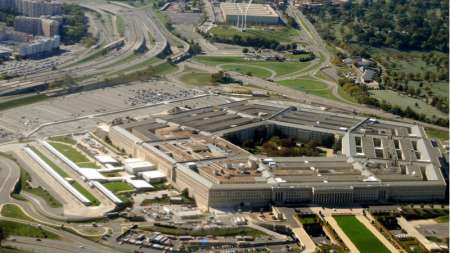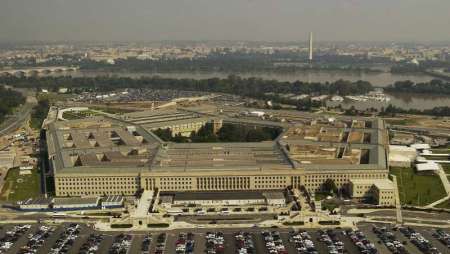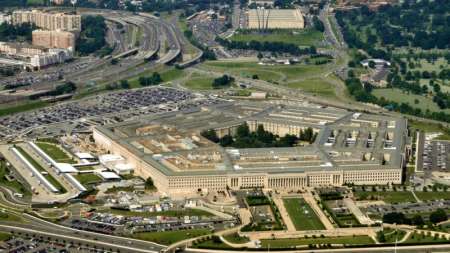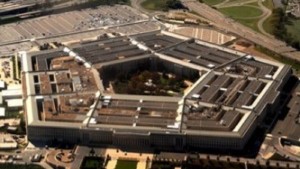Senior Pentagon officials told lawmakers that the department’s new cyber force generation model is intended to help the U.S. military remove and counter threats linked to China that have penetrated America’s critical infrastructure networks. […]
By: Venkat Sundaram, Netskope Although concepts like artificial intelligence (AI) and zero trust have existed in some form for years or even decades, we’re witnessing a continued evolution of both when applied to cybersecurity. This presents opportunities for the Department of War/Defense but also creates new challenges which will come to a head in 2026. With that […]
2025 brought a wave of changes to the Pentagon as it transitioned from the Biden administration to President Donald Trump’s leadership. MeriTalk tracked the department’s tech-focused agenda, which spanned workforce reductions, cybersecurity overhauls, drone dominance and ambitious missile defense programs. […]
One week into the Pentagon’s effort to move its cybersecurity compliance program from policy to practice, adoption of the Cybersecurity Maturity Model Certification (CMMC) program is gaining momentum, but execution remains slow, according to a new industry survey. […]
Katie Arrington, performing the duties of the Pentagon’s chief information officer, announced that the Defense Department (DOD) is developing a new program to streamline and unify its classified data networks. […]
Sen. Elizabeth Warren, D-Mass., is questioning the Pentagon’s decision to deploy the artificial intelligence model developed by Elon Musk, the former senior advisor to President Donald Trump, and provide the model access to sensitive government information. […]
The Pentagon is preparing to release new guidance on data tagging and labeling, according to a senior official. The move aims to resolve a long-standing issue that has hindered the department’s ability to fully implement its zero trust cybersecurity strategy. […]
The Senate Armed Services Committee narrowly approved Pete Hegseth’s nomination to become Defense Secretary on Monday afternoon. The 14-13 committee vote sets the stage for a full Senate vote expected later this week. […]
A congressional advisory body is calling on lawmakers to establish and fund a “Manhattan Project-like program dedicated to racing to and acquiring an Artificial General Intelligence (AGI) capability.” […]
Former Massachusetts Air National Guard member Jack Teixeira was sentenced on Tuesday to 15 years in prison for leaking classified national defense information online, including many documents designated top secret. […]
President Biden this week hit the refresh button on dozens of nominations left over from 2023, including several for officials that may have big impacts on the Federal technology and workforce fronts within the Department of Defense (DoD) if their nominations are cleared by the U.S. Senate. […]
In today’s world, national security threats can come in many different forms – ranging from adversaries exploiting social media, IT, and other aspects of the information environment. The Pentagon has training in place to help leaders to operate in this environment, but a new Government Accountability Office (GAO) report says the agency lacks guidance to go along with the training, leaving leaders confused about what topics to cover – and possibly unable to make effective decisions. […]
More than 87 percent of Pentagon supply chain contractors have failed minimum cybersecurity regulations, a new report by CyberSheath said. […]
The Pentagon has announced a new website dubbed “Innovation Pathways” that is aimed at allowing people to work more easily with the Department of Defense (DoD), “with a special focus on students, universities, and businesses.” […]
The Pentagon Reservation has moved to Health Protection Condition Bravo, allowing up to 50 percent occupancy amid a significant decrease in COVID-19 cases. […]
Effective 5 a.m. EST on Monday, Jan. 10, 2022, the Pentagon Reservation will be moving to Health Protection Condition (HPCON) Charlie, with workspace capacity required to be at less than 25 percent and supervisors continuing to provide maximum telework opportunities. […]
Rep. Adam Smith, D-Wash., chairman of the House Armed Services Committee, said today that the Pentagon, as well as the rest of the Federal government, needs to adopt a problem-solving mindset in order to succeed in innovation in a rapidly changing technological landscape. […]
The Pentagon is preparing guidance to mandate all service members receive the COVID-19 vaccine, now that the Pfizer vaccine has received full approval from the Food and Drug Administration (FDA), Pentagon spokesman John Kirby said today. […]
The Pentagon’s Defense Innovation Unit (DIU) said July 1 that cloud security provider Zscaler, Google Cloud, and McAfee Public Sector have successfully completed Secure Cloud Management (SCM) prototypes as part of a year-long process under which DIU has been evaluating service offerings that “deliver fast, secure, and controlled access by DIU users to software-as-a-service (SaaS) apps directly over the internet.” […]
The Defense Department (DoD) is putting in place additional workplace restrictions for the Pentagon Reservation area over the Thanksgiving weekend – effective at 5:00 a.m. EST on Nov. 26 – due to the increased spike COVID-19 cases in the National Capital Region. […]
With one week to go until the Pentagon is scheduled to make a decision to re-award its multi-billion-dollar Joint Enterprise Defense Infrastructure cloud computing contract, the Department of Defense asked for a month’s extension. […]
The Department of Defense (DoD) will move to phase two of its reopening plan on June 29, allowing for up to 80 percent of employees to return to offices in the National Capital Region (NCR). […]
The Department of Defense (DoD) is beginning Phase One of reopening of the Pentagon today, under the Pentagon Reservation Plan for Resilience. […]
The Department of Defense’s (DoD) artificial intelligence (AI) development and deployment efforts thus far lacks the communication, strategy, and metrics necessary for success, according to a December 2019 RAND Corporation report mandated by Congress. […]
House Armed Services Committee Chair Rep. Adam Smith, D-Wash., in a letter dated yesterday, rejected the Pentagon’s intent to transfer $1 billion to the Department of Homeland Security to fund construction of southern border barriers. […]
The Defense Department’s (DoD’s) ability to reprogram funds may be hindered in the future because of the Pentagon’s approval of a transfer up to $1 billion to the Department of Homeland Security yesterday to build the Trump administration’s long-requested southern border wall. […]
As the Trump Administration looks for ways to fund the construction of physical barriers on the southern border, some cyber-related military construction projects could see their funds diverted. […]
The Defense Department (DoD) has renewed its focus on equipping the warfighter with the best technology. Alongside new changes, they’re proceeding at machine speed to streamline that process. IT innovation through audacious experimentation has been a DoD hallmark throughout the years, and has led to storied research and development (R&D) accomplishments. But on that path, some Pentagon projects have gone amiss. […]
The Department of Defense released the latest chapter of its cyber strategy on Tuesday, which takes a more offensive stance than its 2015 predecessor and directs DoD to “defend forward, shape the day-to-day competition, and prepare for war” in cyberspace. […]
The Department of Defense (DoD) has hired Michael Conlin as its first chief data officer (CDO). According to his LinkedIn profile, Conlin started in his new position in July. […]





















